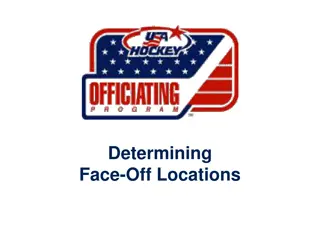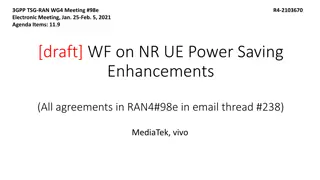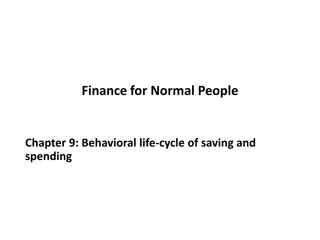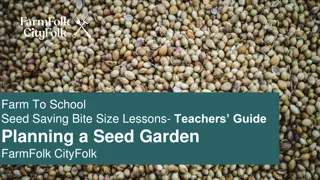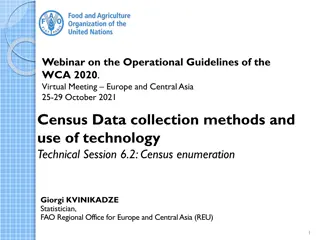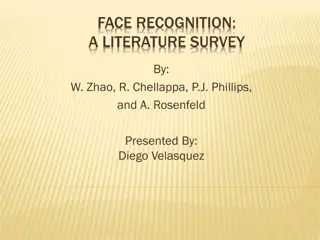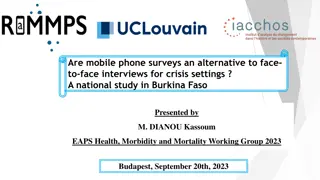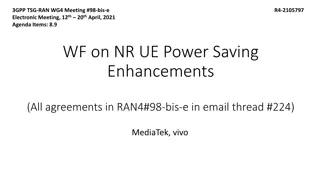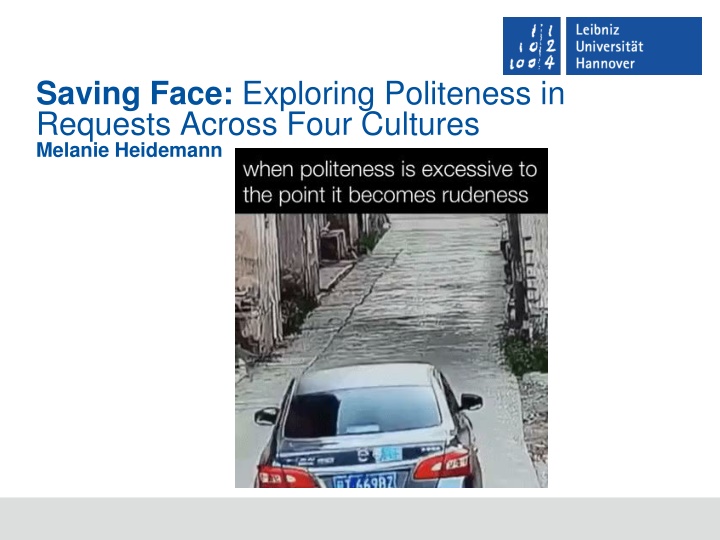
Exploring Politeness in Cross-Cultural Request Strategies
Delve into the art of requesting across different cultures with a focus on politeness, indirectness, and face-saving strategies. Learn about the theoretical frameworks behind successful politeness and the linguistic variables involved in making requests. Discover how language plays a crucial role in maintaining positive relationships and avoiding conflict in intercultural communication.
Download Presentation

Please find below an Image/Link to download the presentation.
The content on the website is provided AS IS for your information and personal use only. It may not be sold, licensed, or shared on other websites without obtaining consent from the author. If you encounter any issues during the download, it is possible that the publisher has removed the file from their server.
You are allowed to download the files provided on this website for personal or commercial use, subject to the condition that they are used lawfully. All files are the property of their respective owners.
The content on the website is provided AS IS for your information and personal use only. It may not be sold, licensed, or shared on other websites without obtaining consent from the author.
E N D
Presentation Transcript
Saving Face: Exploring Politeness in Requests Across Four Cultures Melanie Heidemann
Part I STARTING POINT Seite 2
The Project: The Art of Requesting Collaborative research project for final theses B.A, M.A., M.Ed. Shared perception-based questionnaire Restudy of Blum-Kulka (1987) aim: uncovering the relation between indirectness and politeness in various contexts Seite 3
Part II THEORETICAL FOUNDATIONS Seite 5
Theoretical Framework: Politeness chameleon-like character successful politeness can become barely noticeable (Watts 2003: 189) Functions and goals: - Anticipating possible face-threats - Avoiding conflict - Avoiding aggression - Building positive relationships Seite 6
Theoretical Framework - Brown & Levinson: Face Attribute that can be gained, lost, enhanced, saved Basic want Maintenance requires facework FTA = Face-Threatening Act Indirectness as a strategy to save face? Seite 7
Theoretical Framework: Indirectness Leech: the gap between (explicit) sense and (implicit) force, and the relation between them (1983: 30) It s so cold in here! Hints allow for plausible deniability (Haugh 2014:18) Seite 8
Linguistic Variable: Requests = a speech act which is uttered by the speaker (S) to invoke any future act A from the hearer (H) (Searle 1969: 66) Head-Act = nucleus of the speech act , also called the request proper (Blum-Kulka 1984: 201, 1989: 17). Excuse me. Could you please turn down the music? It is very loud and I am finding it hard to concentrate. Seite 9
Linguistic Variable: Requests Blum- Kulka coding manual Seite 10
Part III STATE OF THE ART Seite 11
State of the Art: Production Studies Yu (2011) House & Kasper (1981) Ahangari (2011) Trosborg (1995) Fl ck (2016) Culpeper, O Driscoll & Hardaker (2019) Turner & Hiraga (1996) House (2006) And many more Terkourafi (2002) Fl ck & Geluykens (2018) Schneider (2012) Altendorf & Jalanesh (2020) Holtgraves & Yang (1990) Felice (2018) Farenkia (2012) Ogiermann (2009) Merrison (2012) Mansarai (2016) Lin (2009) Seite 12
State of the Art: Perception Studies Seite 13
Blum-Kulka (1987) Directness vs. Politeness CCSARP project cross-cultural focus Ranking tasks Hebrew vs. English a possible disengagement of indirectness from politeness at the end-points of the indirectness scale (Blum-Kulka 1987: 139) Seite 14
British vs. American Politeness American: British: slightly more direct open to non- conventional indirectness value clarity open, informal and casual sensitive towards SD conservative Seite 15
Canadian Politeness Canadian Dainty : most formal and indirect variety in request patterns (Mansarai 2016: 11) Vs. Closer to AmE: oriented towards communicating hospitality (Boberg 2010: 246) Politeness conventions remain unclear Seite 16
German Politeness - - - Stereotypically more direct and content-oriented Lack of politeness Disfavouring hints Each set of options contained a statement that seemed to be a non-option HINT is not a request on its own - participant Predicted culture clashes Seite 17
Part IV STUDY DESIGN Seite 18
DCT/DPT Discourse Completion Test (DCT) Discourse Perception Test (DPT) demographic information + ranking (+ production) + free commentary Sascha Brungs Ausbildung zum Brandschutzhelfer, 20.04.2015 Seite 19
Scenario Overview back and forth of translation Seite 20
The Art of Requesting Coding Modified Blum-Kulka scheme mean values (controversial!) Statistical analysis: T-tests Seite 21
Part V RESULTS & DISCUSSION Seite 22
Results Indirectness vs. Politeness Aligning with Blum-Kulka Cultural Differences: Preparatories, Hints Seite 23
Politeness Ranking in Comparison: English vs. German Same switch in the directness ranking Replacement of PREP in both languages Seite 24
Results Politeness: Cross-Cultural Seite 25
Patterns: Overview 1: Indirectness progresses linearly from MD to MH. Politeness, on the other hand, decreases for non-conventional indirectness. 2: WOND/MIND replace PREP as the most polite strategies (Preparatories) 3: WOND vs. MIND German speakers prefer MIND, English speakers WOND 4: CanEng patterns with BrE for the Preparatory strategies. Seite 26
Pattern 1: non-linear relationship The inferential path for non conventionally indirect requests puts too much on of a burden on the hearer, who has to decode the message. This is seen as more impolite. Seite 27
Pattern 2: PREP Replacement: Perception Threshold Model Seite 28
Pattern 3: German vs. English Younger German speakers likely assimilate towards the English norm due to globalisation (Kranich 2021: 92) Translation errors/effects for MIND/WOND: I was wondering if W rdest du vielleicht Would you mind W re es okay Seite 29
Pattern 4: Differences Between English Varieties WOND/MIND: CanEng + BrE: preference of WOND sign of remaining Canadian Dainty values AmE: preference of MIND sign of positive politeness and catering towards the hearer For other strategies (Hints) the alliances shift: CanEng remains in-between BrE and AmE politeness conventions Seite 30
Limitations and Outlook Post-hoc reflection with participants: S6 theory Patterns repeated in larger studies? (seems likely) Qualitative data, metapragmatic data Integration into foreign language teaching Speaking as joint action : examining turn taking and discourse (2ndwave of politeness research) Politeness in requests and A.I. Seite 31
THANK YOU! Seite 32
References Blum-Kulka, Shoshana and Elite Olshtain. 1984. Requests and Apologies: A Cross- Cultural Study of Speech Act Realization Patterns (CCSARP)1. Applied Linguistics 5, 196-213. Blum-Kulka, Shoshana, Juliane House, and Gabriele Kasper. 1989. Appendix: The CCSARP Coding Manual. In: Shoshana Blum-Kulka, Juliane House, and Gabriele Kasper, ed. Cross-Cultural Pragmatics: Requests and Apologies. Norwood, New Jersey: Ablex Publishing Corporation, 273-294. Blum-Kulka, Shoshana, Juliane House, and Gabriele Kasper. 1989. lnvestigating Cross- Cultural Pragmatics: An lntroductory Overview. In: Shoshana Blum-Kulka, Juliane House, and Gabriele Kasper, ed. Cross-Cultural Pragmatics: Requests and Apologies. Norwood, New Jersey: Ablex Publishing Corporation, 1-34. Seite 33
References Blum-Kulka, Shoshana. 1987. Indirectness and Politeness in Requests: Same or Different? Journal of Pragmatics 11, 131-146. Boberg, Charles. 2010. The English Language in Canada. Cambrigde: Cambrigde University Press. Leech, Geoffrey. 2014. The Pragmatics of Politeness. Oxford: Oxford University Press. Leech, Geoffrey. 1983. Principles of Pragmatics. London and New York: Longman. Mansarai, Aisha. 2016. On Politeness in Canadian and Australian English. Utrecht: Utrecht University Press. Merrison, Andrew John et al. 2012. Getting stuff done: Comparing email requests from students in higher education in Britain and Australia. Journal of Pragmatics 44, 1077-98. Seite 34
Results: Scenario 6 (Security Guard) Contrary use of strategies Seite 35
Pattern 5: Similar Intentions, Different Strategies in S6 Speaker power as a determining factor: requests disguised as orders (one cannot deny the speaker the request) German speakers: Parken Sie bitte Ihr Auto um. German stereotype confimend English speakers: Your car is blocking the emergency exit Passive aggressive use of Hints? Kranich (2021) interviews: Speakers of both languages expect people in power to be more direct Seite 36




